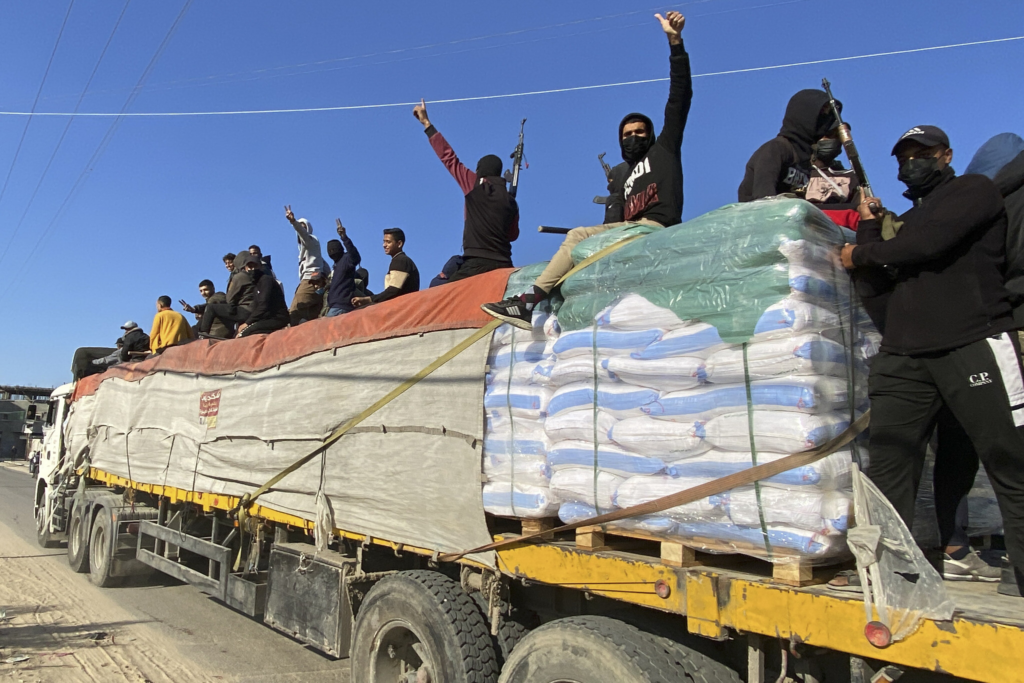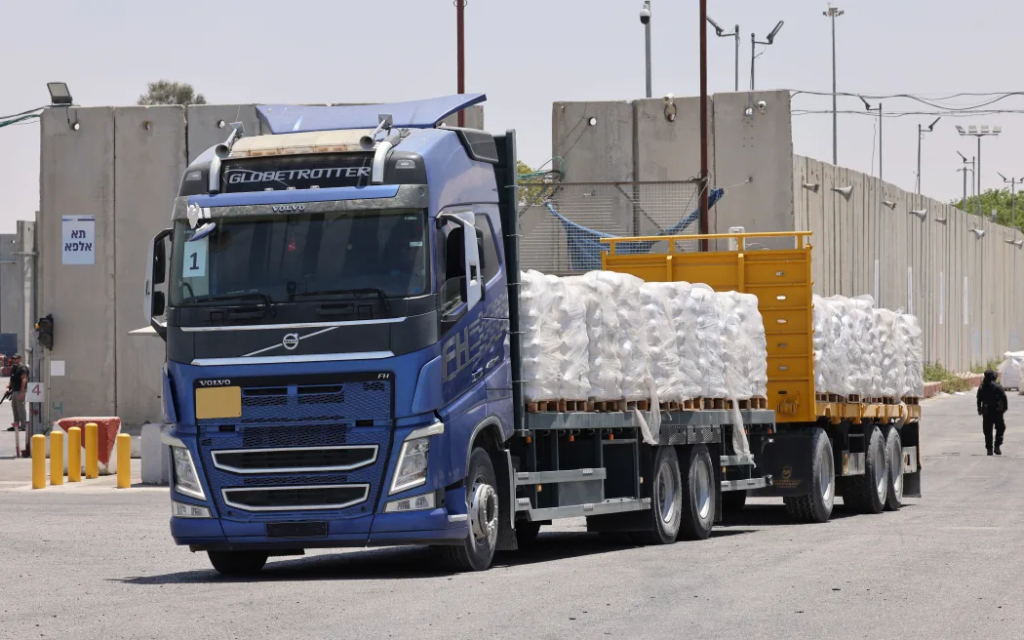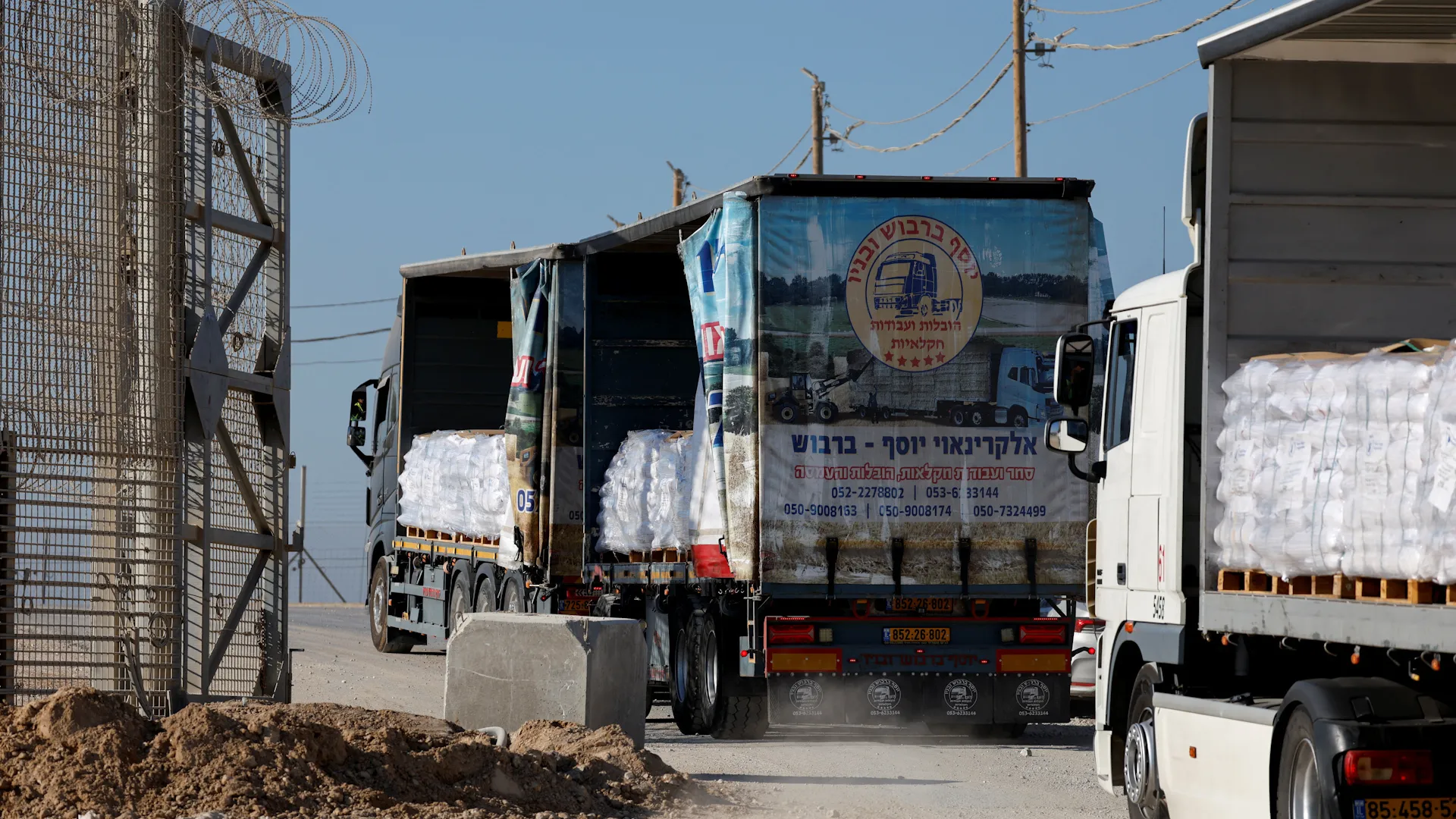Food aid trucks looted in Gaza reflect the deepening crisis and escalating chaos that has gripped the region. The violent seizure of humanitarian aid—especially on the scale witnessed recently—underscores the desperate situation of civilians caught in the crossfire.
The latest incident involving 109 UN aid lorries, where masked gunmen forced drivers to surrender food at gunpoint, marks one of the most severe cases of aid looting in the ongoing conflict. This event raises critical questions about the security, accountability, and humanitarian access in a war-torn region teetering on the brink of famine.
Breakdown of Civil Order and Humanitarian Crisis
The attack on the UN convoy highlights the broader breakdown of civil order in Gaza. Philippe Lazzarini, the commissioner general of the United Nations Relief and Works Agency (Unrwa), emphasized that the chaotic environment has made humanitarian operations nearly impossible.
This isn’t an isolated incident; it’s a symptom of a region where traditional authority structures have weakened, and desperation drives violent competition over scarce resources. Local gangs and families, vying for control, have turned aid convoys into targets.
The looting incident took place shortly after the convoy passed through the Israeli-controlled Kerem Shalom crossing. According to reports, masked men ambushed the trucks, using grenades to intimidate and coerce the drivers.
Eyewitnesses described a scene of chaos and fear, with food supplies forcibly removed. The attackers’ identities remain unclear, but their actions highlight the lawlessness prevailing in Gaza.
Read : US Rejects ICC Arrest Warrant Against Israeli PM Netanyahu
The consequences of these attacks are dire. With over two million people in Gaza reliant on aid for survival, any disruption to food distribution exacerbates the already critical situation. Unrwa has warned that without immediate intervention, severe food shortages will worsen.
Read : Colombia Suspends Coal Exports to Israel Due to War in Gaza
A UN-backed assessment earlier this month indicated that famine is imminent in northern Gaza. The humanitarian crisis is deepening, and the inability to deliver aid compounds the suffering of civilians.
Challenges of Aid Distribution in Conflict Zones
Delivering aid in conflict zones is fraught with challenges. The recent looting incident illustrates the complex dynamics at play. The convoy was reportedly directed by Israeli authorities to use an unfamiliar route—a deviation that may have made it more vulnerable to attack. This raises questions about the coordination and planning of aid deliveries.
Humanitarian organizations must navigate not only the physical dangers of a war zone but also the logistical and political obstacles imposed by warring factions.

The Israeli military body responsible for humanitarian affairs in Gaza, Cogat, has acknowledged these challenges. In a statement, Cogat said it is working with UN agencies to facilitate aid delivery. However, aid organizations have criticized Israel for not doing enough to ensure the safe passage of convoys.
Unrwa accused Israeli authorities of disregarding their obligations under international law. According to Unrwa, Israel must ensure that aid reaches those in need—not just at the border crossing but throughout the distribution process.
Israeli authorities have countered by blaming Hamas for the looting and violence. They argue that there are no restrictions on the amount of aid entering Gaza and accuse Hamas of stealing supplies meant for civilians. Hamas denies these allegations and has pointed to the Israeli military’s actions as contributing to the chaos.
The reality is likely more complex, with multiple factors—including the destruction of infrastructure, the breakdown of law enforcement, and the desperation of the population—contributing to the current crisis.
Human Cost and the Path Forward
The human cost of the conflict in Gaza is staggering. Since the war between Israel and Hamas began in October 2023, more than 43,920 people have been killed, according to Gaza’s health ministry. The recent Israeli strikes, which reportedly killed more than 30 people, including women and children, underscore the relentless violence. Each death represents a family torn apart, a community devastated, and a future cut short.

The looting of aid convoys is not just a logistical challenge; it’s a humanitarian catastrophe. Hundreds of people desperate for food recently stormed an Unrwa-run vocational center in Khan Younis, believing that aid had been delivered there. But there was nothing left—everything had been looted.
This incident reflects the desperation and hopelessness felt by many in Gaza. People are struggling to survive in an environment where basic necessities are scarce, and violence is a constant threat.
Addressing this crisis requires more than just delivering food aid. It requires a coordinated international effort to restore order, rebuild infrastructure, and address the root causes of the conflict.
Humanitarian organizations need better security guarantees, and aid distribution must be protected from looters. Israel, as the occupying power, has a legal and moral obligation to ensure that aid reaches those in need. This includes not only facilitating the entry of aid but also ensuring its safe distribution.

The international community must also hold all parties accountable. The looting of aid convoys is a violation of international humanitarian law, and those responsible must be brought to justice. At the same time, the broader conflict must be addressed. The violence and suffering in Gaza will not end until there is a just and lasting resolution to the Israeli-Palestinian conflict.
The looting of 100 food aid trucks in Gaza is a tragic reminder of the human cost of war. It highlights the breakdown of civil order, the challenges of delivering aid in conflict zones, and the desperate situation of civilians. The international community must act urgently to address this crisis.
Humanitarian aid must be protected, and those responsible for looting must be held accountable. But beyond that, the root causes of the conflict must be addressed. Only then can the people of Gaza hope for a future free from violence and hunger.

